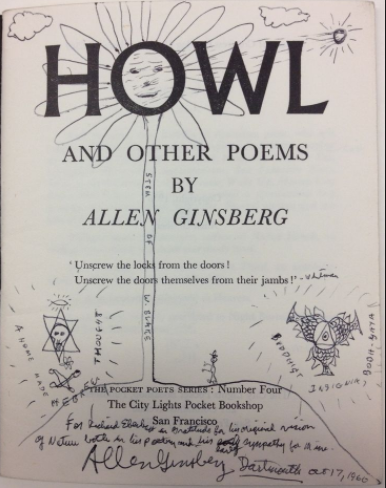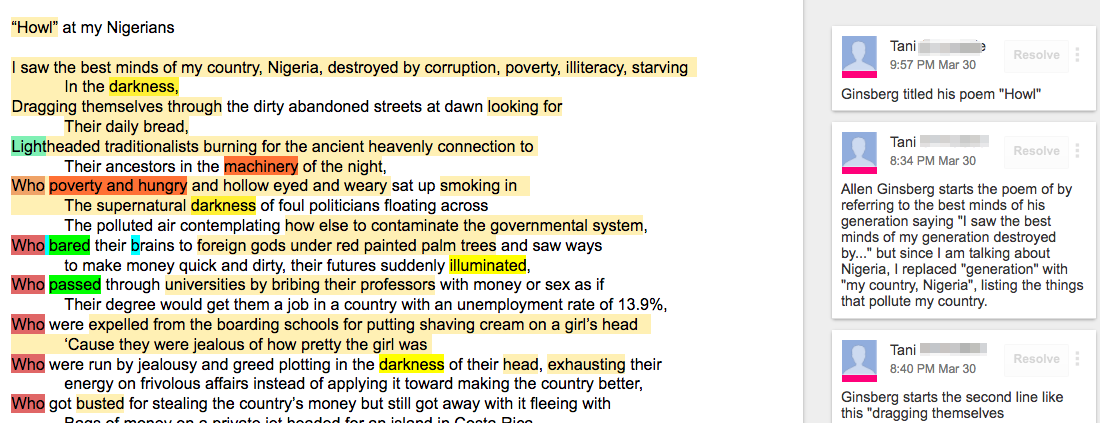My action plan guiding question was, let’s face it, terrible: “How might improving student writing better prepare them for the unknown?” As a result of this ridiculous question, I found it so difficult to make meaningful progress in this area. Why was it so difficult? It was probably because the question is far too broad and difficult to measure. What did I mean by ‘the unknown’?
One realization that slowly rose to the surface was that I wanted my students to see tangible connections between the skills we were learning in our grade 12 English class and their own lives, how they saw the world, and how they engaged with that world.
In addition, I was committed to always working towards a more constructivist approach in my classroom, where the students and teacher worked as partners in building questions that would serve as foundations for inquiry. We built rubrics together, adjusted expectations, and argued over how to best meet those expectations. Would these co-construction principles result in my ultimate goal, to have students see the tangible connections between our class and the real world — one that was largely ‘unknown’?
I think I can safely answer yes to these questions.
Yes: students were measurably happier when they were given not just choice but a voice in what was being studied in class and how that content was to be evaluated.
Yes: when students felt ownership over their learning, the quality of our class discussions improved dramatically.
Yes: when students were challenged to make meaningful connections between what happened inside our classroom and what happened outside our classroom (connections to selves, their community, their world), the quality of the writing and creativity improved.

Our course is a semestered study of the Beat Generation and their literature. We read Kerouac’s On The Road, looked at an anthology of poetry, and are currently working through William S. Burrough’s Naked Lunch. One excellent example of where all of these goals came together was when students were introduced to Allen Ginsberg’s “Howl”. Through a number of activities, students learned about the 1950’s, poetic devices, and close reading skills. We practiced the skill of annotation using google docs, worked in teams to derive meaning from a challenging poem, and then finally students had some options to apply what they had learned to a new context.
Most students chose to write their own personal version of “Howl” that reflected their generation. They were asked to write a pastiche, mimicking the poetic devices, style, and tone of the original poem, but in a manner that suited their view of their world. In addition, students were tasked with annotating their poem and identifying areas that reflected Ginsberg’s style. They used colour to indicate their own creative choices. In the end, the final results were powerful and meaningful. I haven’t seen this quality of creativity and diversity in student writing in any assignment I have ever assigned in 15 years. Below you can see an example of part of such a poem:

What have I learned in these past months?
- narrow the scope of your goals. Ensure they are measurable and student-centered.
- ask for help: when you need inspiration, look to colleagues, look to Twitter, look to the students.
- work in partnership with your students. It will give them a voice, and that’s what you want them to use in their writing.
- write beside them: write everyday, and display your writing to the class while you are writing.
- break some rules: it’s grade 12 — let them have some fun with the language. Make up new words, new sounds, new images.
What started out as a terrible action plan guiding question led to what I consider one of the most successful writing assignments I’ve ever had the privilege to be a part of. This course is all about a group of young men and women who challenged norms and displayed the courage to speak their own truths. That is what I’m starting to see in my students’ writing, and I couldn’t be happier.
Yay! What a fantastic way to end this year! Your HMW question was certainly ambitious, but I love how you pulled it all together. Your class sounds inspiring – I wish you had been my English teacher back in the day!
The fact that you helped make such Beat classics like On the Road, Howl, and Naked Lunch resonate with Grade 12s — by having them write — is a testament to your new approaches. I am keen to work with you to develop co-course culminating tasks.